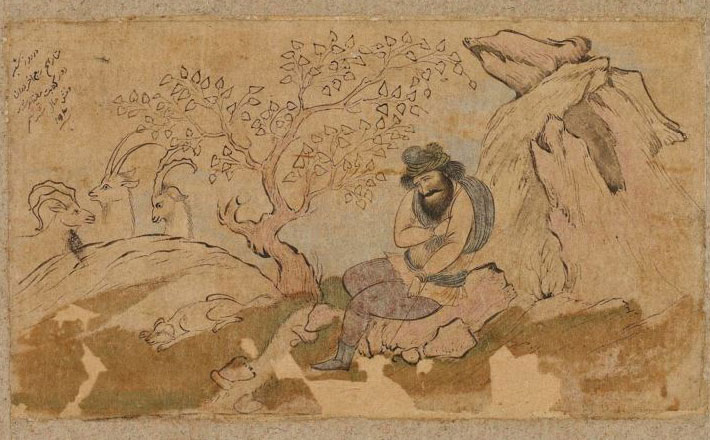Commentary on Acts 9:36-43
In Acts, the gospel is relentlessly expansive.
That the gospel would reach the corners of the world is certainly promised in Acts 1:8 but is not a new chapter in God’s involvement with the world from Luke’s perspective. In fact, the first two chapters of the Gospel of Luke melodically imagine the good news reaching the despised of the world (see the songs of Mary and Zechariah) as well as Israel and the Gentile world alike (see Simeon’s song).
Even these theological harmonies, however, are not innovations for Luke. Instead, they reach even further back into Israel’s story of blessed children born to long-grieving parents, of prophetic pronouncements, of theology and song. The gospel looks beyond the narrow confines we too often seek to draw. In Acts, the spirit constantly pushes the boundaries, forcing Jesus’ earliest followers to question and wonder to whom God has sent the good news.
Such an expansive impulse is exemplified in our passage. Also exemplified in our passage, however, is the underlying theological conviction that God’s action in the world is not innovative but consistent with God’s previous interactions with God’s people.
The beginning of our passage introduces us to a faithful woman named Tabitha but whose Greek name is Dorcas. Her dual names likely suggest that she was herself a cultural hybrid of sorts. In some way, she straddles the cultural line between Judaism and the wider Greco-Roman world. That is, she is at home both in the comfortable cultural confines of her faith but also in the different cultures that surround her.
She is remembered as a person of deep faith and creativity. Luke recalls her good works and acts of charity, drawing our attention back to other faithful people like the centurion in the Gospel of Luke who asks for Jesus’ healing of his servant (Luke 7:1-10). Moreover, when Peter arrives, her friends present tangible evidence of her artistry and work. Perhaps these clothes were created for the sake of those who lacked them. The narrative does not specify this. And yet this small memento of her life is what her friends cling to desperately.
Peter’s arrival brings hope in its wake. One wonders, however, what Tabitha’s friends expected when they called Peter. Did they want Peter to know about this extraordinary believer? Did they wish for the memory of her dear friend to be shared with this pillar of the burgeoning church? Did they perhaps hope for a miracle beyond miracles? Did they perhaps hope against hope for a reprieve from death?
In the narratives of Scripture, they had reason to hope. This and other scenes in Luke-Acts purposefully echo previous stories of God’s sustenance and grace. Both Elijah (1 Kings 17:17-24) and Elisha (2 Kings 4:18-37) pray for God to bring the dead back to life. In this same pattern, Jesus himself brings breath back to the dead (Luke 7:11-17; 8:41-42, 49-56). This miracle is thus perhaps unexpected but not unparalleled. Nearly invariably, death can claim a victory, but throughout the stories of God’s involvement with God’s people, that rule is broken in spectacular fashion.
“Many believed in the Lord.” However, belief does not emerge from a dazzling display of power. Belief is rooted in hope and in trust. So, when the residents of Joppa see Tabitha restored to life, they do not join this community of believers so much because they are stunned by this miraculous act of healing but because of what it might mean for them and for the world. If death is no longer a barrier between us, can we dare hope that the ills that plague us, our families, and our communities might also be healed by a God who cares so deeply for us?
The last verse of our passage would be easy to miss as it seems like a simple aside that mentions Peter’s next destination as Simon the tanner’s home. But here once again, Luke’s literary artistry creates a vibrant transition. After all, it is on the roof of Simon’s house where Peter will see a vision that will lead him to welcome Cornelius and his retinue. This encounter will then lead to Peter’s realization that God shows no partiality (Acts 10:34), welcoming individuals and communities from every corner of the world.
This life-giving gospel is truly and relentlessly expansive. Are our ministries, our communities up to the call to be equally relentless in opening our doors to anyone who might join us? Are our ministries, our communities equally willing to be relentless about leaving the safe confines of the church’s walls and reach out to a dying world with words and deed of life and grace?
In these weeks after Easter, it may be that our wonder over the resurrection may have abated somewhat. Perhaps we have heard the story repeatedly, and our hearing has grown dull. Perhaps Lazarus and Tabitha seem altogether too ordinary. But any of us who have tasted the power of illness and the bitterness of loss can never lose sight of this dazzling miracle. The gospel looks out over a world characterized by death, illness, and loss and yet declares that eternal life is the new order of the day, that Jesus himself embodies and assures us of the promise that death will not have the last word and that no boundary can ever cleave us apart from one another.


April 21, 2013